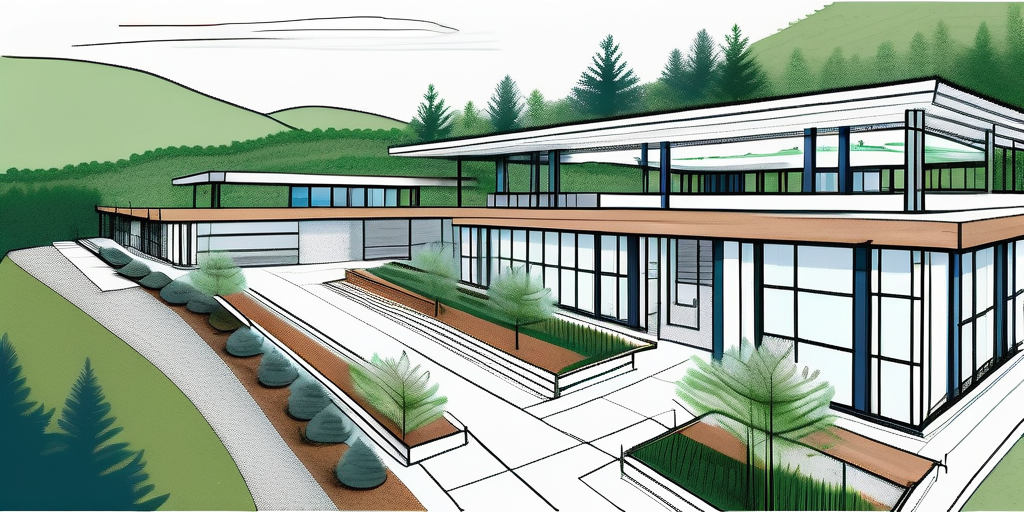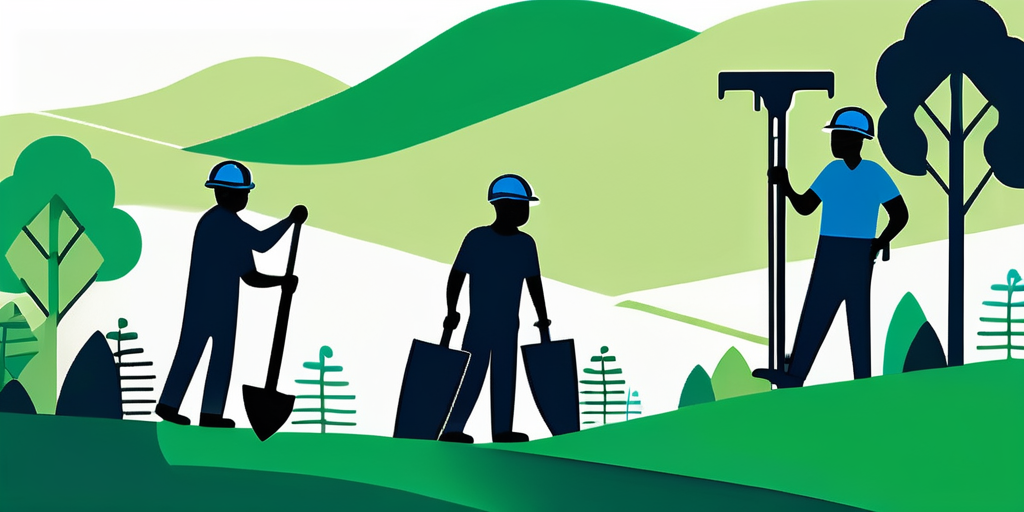
Building a home is a thrilling journey, especially in a beautiful location like Tennessee National. This stunning community offers a unique blend of natural beauty and modern amenities, making it a prime choice for prospective homeowners. However, navigating the complexities of construction can be challenging. To help steer you in the right direction, we’ve compiled some of the most essential questions to ask during the building process.
Before getting your hands dirty in the building process, it's crucial to have a foundational understanding of what you're getting into. From legal requirements to local customs, comprehending these basics will set the stage for a successful build. Familiarizing yourself with the local building codes and zoning laws is essential, as these regulations dictate everything from the height of your home to the materials you can use. Engaging with local builders or architects can provide valuable insights into the nuances of building in this area, ensuring that you are well-prepared for the journey ahead.

Location is often referred to as the "golden rule" of real estate, and for good reason. Tennessee National boasts various landscapes — from serene lakeside views to sprawling wooded areas. Each spot has its own unique charm. Ask yourself: what type of environment do you envision? A lakeside lot may offer recreational opportunities, while a wooded site can provide a sense of privacy. The natural beauty of Tennessee National also means that you might have opportunities for outdoor activities right at your doorstep, such as hiking, fishing, or kayaking, which can greatly enrich your lifestyle.
Also consider the proximity to local amenities such as schools, hospitals, shopping, and recreational activities. A well-chosen location can enhance your quality of life and protect your investment over time. Furthermore, understanding the demographic trends in the area can provide insights into future developments and community growth, which may influence your decision on where to build. Engaging with neighbors and local community groups can also give you a sense of the community spirit and help you envision your life in Tennessee National.
Once you’ve decided on the perfect location, the next step is purchasing land. This process involves several key considerations. First, ensure you have a clear title and that there are no liens on the property. A thorough title search will protect you from future legal troubles. It's also wise to conduct a land survey to confirm the boundaries of your property, which can prevent disputes with neighbors down the line.
Additionally, it's essential to ask about land use regulations. Local governments may have restrictions on building designs, types of approved structures, or even the number of homes allowed on a lot. Engaging with a real estate professional can guide you through this process and ensure you make a sound investment. Understanding the soil quality and topography of the land is also crucial, as these factors can affect construction costs and the overall stability of your future home. Investing in a soil test can reveal important information about drainage, foundation requirements, and landscaping possibilities.
Many communities in Tennessee National have a Homeowners Association (HOA). Before proceeding, it’s crucial to inquire about the HOA's rules and regulations. What guidelines do they have regarding home aesthetics? Are there any restrictions about how you can use your property? Knowing these details can help you avoid potential pitfalls later, ensuring that your vision aligns with community standards and that your new home blends well with your neighbors.
Moreover, understanding the fees associated with the HOA is essential, as these can vary widely and impact your overall budget. Some HOAs offer amenities such as community pools, parks, or organized events, which can enhance your living experience. However, it's important to weigh these benefits against the costs and restrictions imposed. Engaging with current residents can provide insight into the HOA's effectiveness and responsiveness, allowing you to make a more informed decision about your future community involvement.
With a solid grasp of the basics, it’s time to dive deeper into the specific questions that will guide your building journey. These inquiries will help you cover your bases and ensure you're well-informed.

A major step before starting construction is understanding the specific characteristics of your land. Ask about soil quality, drainage, and any potential issues that could arise during building. Do thorough soil tests to uncover any hidden problems that may affect your structure in the future.
Also inquire about the availability of utilities like water, electricity, and sewage. If these services aren't readily available, what are the costs and time frames associated with bringing them to your property? Furthermore, consider the zoning regulations and land use restrictions that may impact your building plans. Understanding the local regulations can save you from costly modifications later on and help you align your vision with what is permissible in your area.
The construction phase can be complex and multifaceted. Seek clarity by asking about the timeline for project completion. Understanding the various stages of construction and their expected durations will help you plan effectively.
Additionally, discuss construction methodologies with your builder. Inquire about their approach and the materials they prefer to use. This will give you insights into the overall quality and longevity of your future home. It’s also beneficial to ask about the team that will be working on your project. Who will be the project manager, and what are their qualifications? Knowing the expertise of the individuals involved can provide you with confidence in the execution of your build.
Diving into the financial aspects is unavoidable when building a home. Pose critical questions about potential financing options available to you. What types of loans are suitable for construction? Are there grants or incentives you can take advantage of?
Make sure to inquire about budgetary constraints as well. Understanding what is feasible within your financial means is crucial. Create a detailed budget and discuss it openly with your builder to avoid unexpected expenses. Additionally, consider asking about contingency funds. It’s wise to set aside a portion of your budget for unforeseen costs that may arise during construction, such as changes in material prices or unexpected site conditions. This proactive approach can help you maintain financial stability throughout the building process, allowing you to focus on creating your dream home without the stress of budget overruns.
Building a home involves numerous legal considerations. Before you break ground, arm yourself with knowledge on local laws and regulations. This will prevent future complications and headaches.
Zoning laws dictate how land can be used and what can be built upon it. Investigate the zoning classification of your property. Can you build single-family homes, or are there restrictions that might require special permissions?
Familiarizing yourself with these laws will help you avoid fines or legal challenges after construction has commenced. It’s wise to consult with local planning departments to clarify any uncertainties you may have. Additionally, understanding the nuances of zoning can also open up opportunities for future expansions or modifications to your property, should you choose to enhance your living space later on. Engaging with community boards or local homeowner associations can provide insights into upcoming zoning changes that might affect your plans.
Obtaining the necessary building permits before construction is not just a suggestion; it’s a requirement in most municipalities. Ask what specific permits you’ll need in Tennessee National and the application processes involved.
Failure to secure appropriate permits can lead to costly delays and legal complications. Ensuring you have everything in place from the outset will make your building experience smoother and more successful. Moreover, permits often come with inspections at various stages of construction, which can serve as a quality control measure. These inspections can help ensure that your home is built to code, providing peace of mind that your investment is safe and sound. It’s also beneficial to keep a detailed record of all permits and inspections, as this documentation can be invaluable should you ever decide to sell your home.
As a new builder, you will encounter several legal considerations. Ask about contractor agreements and warranties. What protections does the contract offer you as a homeowner? Are there provisions for dealing with disputes or construction delays?
Consider consulting a legal expert who specializes in real estate to review contracts and provide advice. This foresight can save you from potential headaches down the road. Additionally, it’s crucial to understand the implications of liability insurance and worker’s compensation in the event of accidents on-site. Knowing who is responsible for what can protect you from unexpected financial burdens. Furthermore, ensure that your contractor is licensed and insured; this not only legitimizes their work but also provides an extra layer of protection for you as a homeowner. Engaging in thorough due diligence now can set the foundation for a successful building experience, allowing you to focus on creating your dream home without the shadow of legal issues looming overhead.
Choosing the right team for your construction project is pivotal. A good builder will not only facilitate construction but offer valuable guidance throughout the process. The right team can make a significant difference in the quality of the finished product and the overall experience of building your dream home.

When selecting a builder, consider their track record. Ask for references and examine their previous projects. What do former clients have to say about their experiences? A solid reputation is often a good indicator of reliability. Look for builders who specialize in the type of project you are undertaking, whether it's a custom home, a renovation, or a commercial build. Their expertise in your specific area can lead to more innovative solutions and a smoother construction process.
Additionally, inquire about how they handle communication. Regular updates and open lines of communication prevent misunderstandings and build trust. Choose someone who aligns with your vision and values. It’s also wise to assess their problem-solving skills; construction projects often come with unexpected challenges, and a builder who can navigate these issues effectively will save you time and money.
An architect can be invaluable in realizing your dream home. They can help translate your wishes into practical designs, ensuring structural integrity and aesthetic appeal. Ask how they can assist in personalizing your floor plan and maximizing the functionality of your space. Architects often have a wealth of knowledge about building codes and zoning laws, which can help avoid costly mistakes down the line.
Inquire about their process for collaboration with builders and how involved they will be during the construction phase. A good architect should be a partner in turning your vision into reality. They can also provide insights into sustainable building practices, helping you incorporate energy-efficient solutions that not only benefit the environment but can also reduce long-term costs.
Lastly, consider the importance of coordination with interior designers and landscapers. Ask how these professionals can elevate your overall project. What ideas do they have to enhance both the durability and aesthetics of your home? Interior designers can assist in selecting materials that are both beautiful and functional, ensuring that your space reflects your style while remaining practical for everyday use.
Establishing a clear line of collaboration among all parties involved will yield a cohesive outcome that seamlessly integrates the interior and exterior designs of your new home. Additionally, a well-planned landscape can enhance curb appeal and create inviting outdoor spaces for relaxation and entertainment, making your home not just a structure, but a true sanctuary.
Building a home in Tennessee National offers endless possibilities and it’s essential to navigate the key questions thoughtfully. By understanding the basics, addressing the vital inquiries before construction, navigating legal requirements, and selecting the right team, you can create the perfect haven for you and your family. Engaging with local professionals who understand the unique characteristics of the Tennessee landscape can also provide insights that enhance your project, ensuring that your home harmonizes with its natural surroundings.